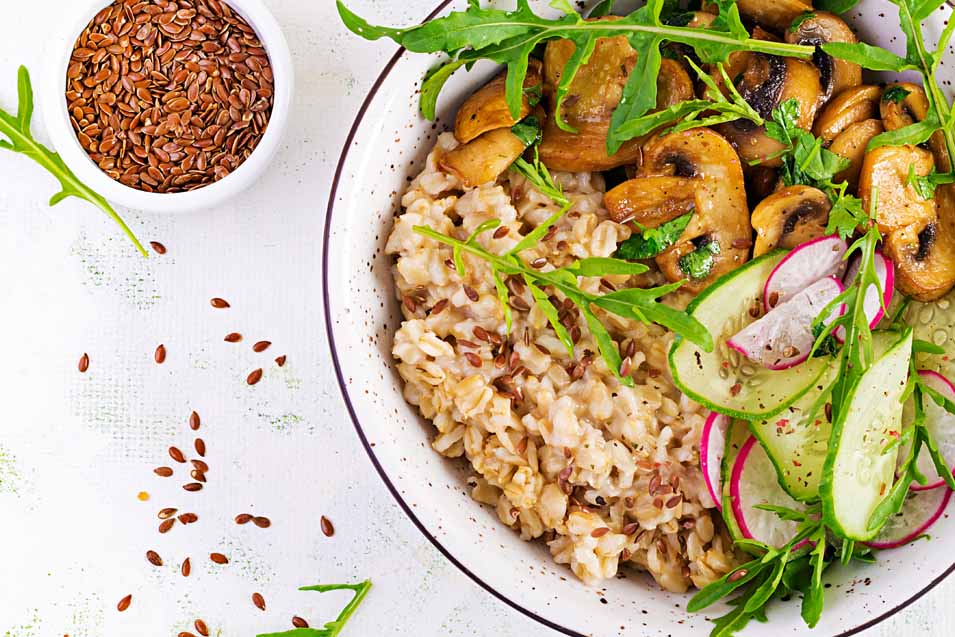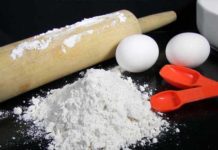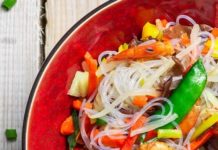
Switching From Meat To Vegan? Here’s A List of the Best Meat Substitutes!
If you’re looking to convert from a non-vegetarian to vegetarian or vegan, congratulations! You’re at the right place.
Consuming meat does more harm than good, and switching to plant-based food is the key to a healthy life.
However, switching to Vegan may not be a smooth transition. Meat cravings will be your biggest enemy.
The good news? There are plant-based meat substitutes that can help you curb those cravings.
So, why wait? Keep reading this article for the best plant-based meat substitutes to help you in a smooth eating transition!
Tofu
Tofu is a soft, cheese-like food made of soybean curd (the coagulated protein of soybean liquid) and is one of the most popular meat substitutes today.
Your doctor is right – eating more tofu can have a positive effect on your health. In addition to being packed with protein, tofu is also a good source of iron, amino acids, calcium, and omega-3 fatty acids.
One Cup of Tofu contains:
- Fat: 11.86 grams
- Fiber: 0.744 grams
- Calories: 188.4
- Calcium: 868 milligrams
- Protein: 20 grams
Tip: Due to its bland taste, you may want to marinate it with the right spices to achieve the desired taste.
Tempeh
Tempeh, a traditional Indonesian food, is a popular meat substitute. It is made from whole soybeans that are formed into a patty. The tempeh patties are then fermented. This fermentation process makes tempeh firmer in texture than tofu. It is a high protein food.
It contains all the essential amino acids that our bodies need. Below is a list of ingredients one Cup of Tempeh contains:
- Calcium: 184 mg
- Protein: 33.7 g
- F: 17.9 g
- Calories: 319
- Iron: 4.48 mg
Note: Tempeh is also rich in Vitamin B-6 and Magnesium.
Seitan
Seitan (wheat meat) is a vital wheat gluten product and a healthy meat substitute rich in protein.
The gluten is separated from the starch in wheat, leaving the protein-dense food. The wheat gluten is then mixed with an alkaline solution and rinsed, which causes the gluten to swell up and become tender.
A 4-oz serving of Seitan contains:
- Protein: 28 grams
- Calories: 140
- Fat: 2 grams
Note:
- Seitan is a Japanese word that translates to “pure gluten” or “god of gluten.”
- Seitan is not recommended for people with celiac disease.
Plant-Based Foods
Understand this: Protein is an essential part of a healthy diet. It is the building block of the human body, important in the growth and repair of muscles, blood, skin, and hair. It is also needed for the functioning of the immune system and cell communication.
Plant-based meat substitutes are healthful since they are made with mostly water, fibre, and protein instead of the saturated fats found in processed meats. These plant-based meat alternatives also have significantly fewer calories and less cholesterol than meat, and they often contain no cholesterol whatsoever.
Beans, including soybeans and mushrooms, are two of the richest protein sources in the plant kingdom. However, you can also use lentils, beans, mushrooms, and chickpeas in your schedule – that is protein-rich, highly customizable, and a treat to the tongue (for Foodies!)
Textured vegetable protein
Textured vegetable protein, or TVP, is a meat substitute that is sold in granular form. It is made from defatted soy flour, which is a byproduct of soybean oil extraction.
TVP is made by passing a slurry of soybeans through a heat exchanger. The goal is to separate the lipids from the protein. The result is a curd-like soy protein product, which is then dried and extruded.
One Cup Serving of TVP contains:
- Calcium: 164 milligrams
- Protein: 35 grams
- Fat: 0.83 grams
- Fibre: 11.9 grams
Final Word
Plant-based foods are good for your health. Innocent animals don’t have to die to become your meal when you switch to plant-based food.
Take notes from this article, shop ingredients from awesome plant-based stores like Future Farm, and go vegan!





